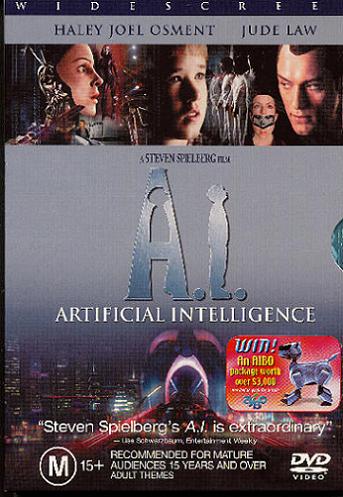Computers work faster than our minds: does this mean that they will eventually reach consciousness? Two very smart people are discussing this.

There are not going to be computers, the version of God from "A Space Odyssey", telling us what to do - or refusing to open the door, in 2001, but according to some estimates, the computers can already overcome the speed of thought of some of the most brilliant human minds, for example, the fastest computers At the US Department of Energy, they can beat us in the number of operations per second they can perform. Our poor brain can perform several thousand operations per second; The Ministry of Energy's computers can perform 2 trillion operations per second (2 teraflops).
But will the computers become conscious creatures, like us, and maybe be smarter than us? Reporter John K. Quine posed these questions to two of the most outspoken thinkers on these issues today: technologist and futurist Ray Kurzweil and philosopher John Searle. Kurzweil is the chairman and CEO of "Kurzweil Technologies" and recently authored "The Age of Spiritual Machines, When Computers Overcome Human Intelligence". Searle is a professor at the University of California, Berkeley, and he authored several classic works on the philosophy of thought, including Mind, Mind, and Science (1984), Question: What would it take for a computer to think on its own, and when do you believe such a thing will happen, if at all?
Answer: According to today's standards, a lot of computing power is required, I estimate that it would take 20 million billion operations per second to simulate a human brain, however, by the year 2019, such a device will cost $1,000, however, the required computing power is necessary, but not a sufficient condition. To create human-level intelligence. We also need the computer software and algorithms.
Question: The Turing criterion - proposed by the mathematician Alan Turing in 1950 is supposed to determine whether we can say that a computer is capable of thinking, relying on the fact that a person "sat in a remote place and communicates with the computer" and to distinguish between a computer and a person based on answers to various questions posed by the person, do you Think a computer could ever pass the Turing test?
Answer: Until the year 2029, even though the computers will have passed forms of the Turing test that seem valid, the debate will still continue as to whether machine intelligence is equal to human intelligence in all its forms, but in order for a computer program to respond convincingly, it will have to be as complex as the human brain,
Question: When the computers load the ads, will we believe them?
Answer: The computers will claim consciousness within 30 years, these claims will be mostly accepted, some philosophers will dispute this, and say that you cannot be conscious if you are a life form based on DNA-directed protein synthesis, however in my opinion, the idea of humans merging with their technology It is only the next step in evolution and represents the continuation of human-machine culture, until the year 2099 there will be a strong trend towards the merging of human thought in the world of machine intelligence.
Searle: Unlikely
Question: Will computers start thinking on their own?
Answer: A computer defined as a machine that manipulates symbols will not succeed in this, there must be causality. or in other words. The symbols must have meaning for the machine to operate - but they only have meaning for us and the programmers. The symbols that the computer manipulates are not as important to it as the garlic peel. If so, can a system think only relying on the operation of symbols? of course not.
Question: So, even if the computer appears to think and acts like a person, it will not actually think?
Answer: I can already program my computer so that it says it has awareness, but that has nothing and a half to do with being aware, all that the computer does is just a simulation of these processes.
Question: Is there a way to build a machine that thinks?
Answer: Certainly, if we build something similar to our brain. Our brain is a machine, so I see no reason to prevent us from building an artificial brain. It is possible that we are not far from achieving the goal, and I do not see any factor that interferes with this principle.
